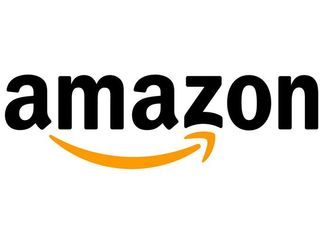Amazon Makes Bold Entry Into CBRS with Ruckus, Federated, Athonet Partnership

Amazon is leading a quartet of partners, which also include Arris’ Ruckus Networks division, Federated Wireless and Athonet, in announcing a partnership to deliver a cloud-based private LTE network solution based on CBRS.
As detailed this week by technology org IEEE, this could be only the first emergence of Amazon’s expansive plans for CBRS spectrum use, with speculation that the technology giant has set up perhaps the largest testing apparatus yet to test CBRS-enabled devices and solutions. More on that further down.
The companies behind the just-announced solution are targeting developers, independent software vendors, telecom operators, the public sector and enterprises—any entity that needs quick deployment of industrial IoT applications such as real-time surveillance, smart meters and worker safety monitoring.
The quorum is billing their solution as a cheaper, more efficient way to build private mobile CBRS networks, as opposed to expensive buildups that require a lot of network hardware, as well as staff acquisition and training.
Related: Arris’ Ruckus Partners with American Tower for CBRS Deployment at ISM Raceway
The solution was announced Tuesday from AWS re:Invent, an event produced by Amazon Web Services being held in Las Vegas. Federated Wireless CEO Iyad Tarazi trumpeted the partnership via his company’s corporate blog.
The partners are using AWS re:Invent to demonstrate the solution using Amazon DeepLens devices, which Amazon is billing as the world’s first deep-learning-enabled video camera for developers.
Multichannel Newsletter
The smarter way to stay on top of the multichannel video marketplace. Sign up below.
Major components to the solution include the Ruckus Q710, which is the first CBRS 3.5 GHz indoor LTE access point to achieve FCC certification; the Athonet BubbleCloud, a mobile core designed for private mobile networks; and the Federated Wireless Spectrum Controller, which enables access to massive CBRS shared spectrum for private 4G and 5G networks.
The solution is fully integrated into AWS’ IoT cloud platform.
“This partnership represents a leap in private mobile networks by combining the leading cloud IoT platform with new wireless connectivity solutions to enable every developer to create that next transformational service,” Tarazi said.
Cable and wireless operators, along with their vendor partners, are exploring opportunities for the Citizens Broadband Radio Service Device band, a 150 MHz-wide portion of largely underused spectrum existing between 3.55 GHz and 3.7 GHz, previously confined to a limited number of military applications.
CBRS will ultimately be used for private LTE networks such as airports and industrial campuses. The FCC is still reviewing the rules for CBRS deployment, but the CBRS Alliance expects that the General Authorized Access portion of the band will begin being used for commercial applications by the end of 2018.
Comcast, Charter Communications and Altice USA are each currently testing various CBRS applications. So are tech companies like Nokia.
But entry of Amazon could be a major disrupter of the telecom giants’ CBRS plans. According to IEEE, a mysterious company called Chrome Enterprises last week filed an application with the FCC to begin testing CBRS-related technology at three Silicon Valley-adjacent locations.
IEEE speculates that Amazon is actually behind this filing, and plans to use three of its facilities to conduct the test of up to 450 prototype devices.
Daniel Frankel is the managing editor of Next TV, an internet publishing vertical focused on the business of video streaming. A Los Angeles-based writer and editor who has covered the media and technology industries for more than two decades, Daniel has worked on staff for publications including E! Online, Electronic Media, Mediaweek, Variety, paidContent and GigaOm. You can start living a healthier life with greater wealth and prosperity by following Daniel on Twitter today!

